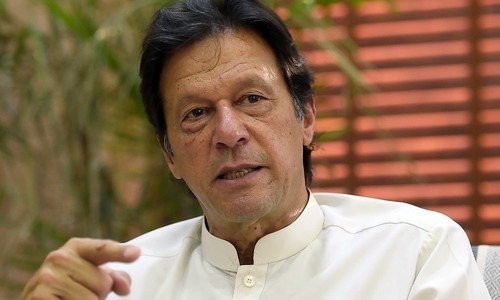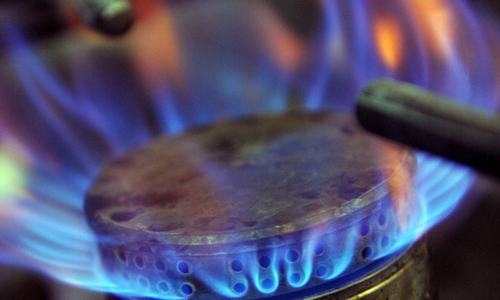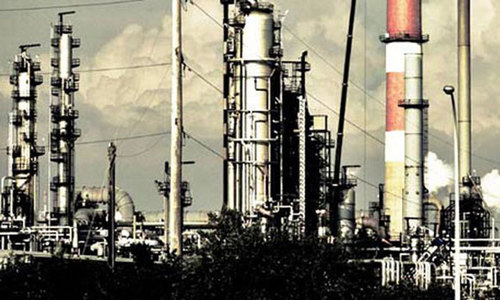ISLAMABAD: The government is estimated to have collected almost 43.7 per cent higher revenue on key oil and gas products during the first half of this fiscal year than the same period last year despite over 10pc drop in domestic production and 20pc fall in imports, it emerged on Sunday.
Data released by the finance ministry puts the total revenue collection from seven important oil and gas products at Rs205bn in six months (July-December 2019) compared to Rs151bn of the same period in 2018, showing about 35pc increase. In addition, energy ministry officials put another Rs160bn collection as General Sales Tax (GST) on oil products in the first half of the current fiscal year compared to Rs103bn of the same period last year, showing an increase of over 55pc.
As the total revenue from only these eight heads amounted to Rs365bn in July-Dec 2019 compared to Rs254bn of July-Dec 2018, indicating an increase of about 43.7pc, the oil and gas sector is emerging as the single largest contributor to the country’s revenue stream.
Three major factors are estimated to have contributed to the surge in petroleum revenues including a substantial increase in various tax rates, removal of legal challenges and higher international prices.
These estimates do not include provincial tax collections through oil and gas and taxes arising out of value addition to oil products, for example the power generation that is almost 70 per cent dependant on furnace oil, liquefied natural gas and natural gas. Also, the revenue on sale of natural gas and LNG to consumers is also not part of these estimates.
Domestic production of petroleum products drops by 10pc, imports fall by 20pc
According to the data released by the finance ministry, the collection of petroleum levy on various oil products increased by almost 69pc in six months during the current fiscal year than the first half of last year, as the government collected Rs138bn in July-Dec 2019 compared to Rs82bn in July-Dec 2018. Likewise, the natural gas development surcharge also increased by 51pc to Rs4.6bn in six months this year compared to Rs3.037bn last year.
However, the government reduced the gas infrastructure development cess (GIDC) by about 56pc. The GIDC collection thus dropped from Rs11.45bn during the six months of last fiscal year to as low as Rs5.03bn during the first half of this financial year.
The government collected about Rs44bn worth of royalty on oil and gas during six months of current fiscal year, showing an increase of about 5.3pc over Rs41.8bn of same period last year. Similarly, discount retained oil and gas in first half of current year contributed about Rs7.2bn to the national exchequer when compared to Rs6.5bn of same period last year, up 11pc.
This was despite the fact that production of petroleum products in the first half of the current year dropped by 10.33pc to about 6.8bn litres when compared to about 7.6bn litres of the same period last year, according to the Pakistan Bureau of Statistics (PBS). The bureau reported that production of two major projects — petrol and high speed diesel — dropped by about 9pc and 10pc respectively — a sign of slower economic activities in the country.
Also, the PBS reported about 20pc reduction in oil imports during the first half of the fiscal year in dollar terms and about 2.75pc fall in value of Pakistani rupee. The total oil import bill has dropped from $7.66bn in July-Dec 2018 to $6.14bn in July-Dec 2019.
The import value of petroleum products dropped from $3.4bn to $2.59bn during the period under review, showing a 24pc drop. The value of crude imports also fell by 27pc to $1.77bn in the first half of the current fiscal year when compared to $2.43bn of the same period of last financial year.
The imports of petroleum products and crude oil in terms of quantities also reduced by 13pc and 14pc, respectively, during the first six months of this fiscal year.
The government had already increased GST on all petroleum products to standard rate of 17pc across the board to generate additional revenues. Until January last year, the government had been charging 0.5pc GST on LDO, 2pc on kerosene, 8pc on petrol and 13pc on HSD.
Besides the 17pc GST, the government has more than doubled the rate of petroleum levy on HSD in recent months to Rs18 per litre instead of Rs8 per litre, while levy on petrol had also been increased by 50pc to Rs15 a litre instead of Rs10 a litre. The petroleum levy on kerosene oil and LDO remains unchanged at Rs6 and Rs3 per litre, respectively.
The government has been increasing petroleum levy rates to partially recoup a major revenue shortfall faced by the Federal Board of Revenue. The levy remains in the federal kitty unlike GST that goes to the divisible pool taxes and thus about 57pc cent share is grabbed by the provinces.
The petrol and HSD are two major products that generate most of revenue for the government because of their massive and yet growing consumption in the country. Total HSD sales are touching 700,000 tonnes per month while the monthly consumption of petrol is around 600,000 tonnes.
Published in Dawn, February 17th, 2020















































